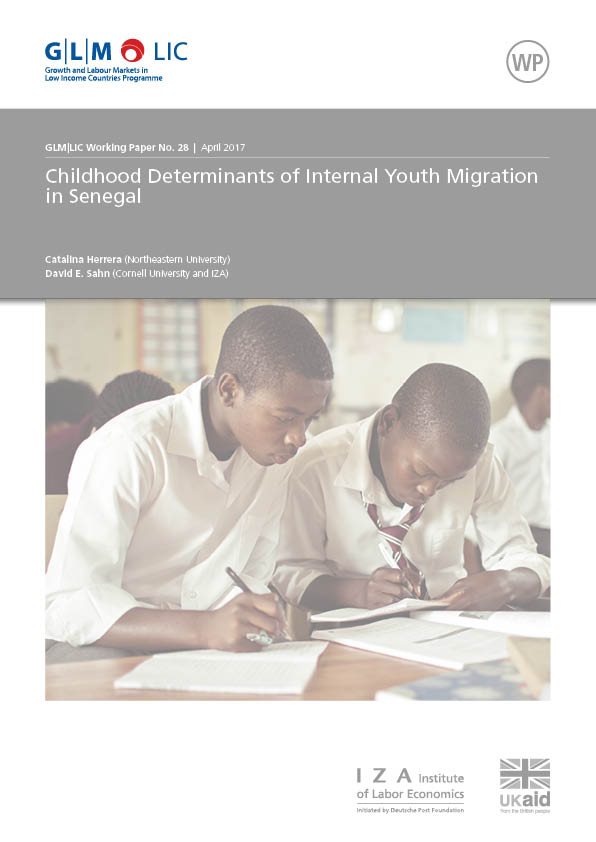We analyse the socio-economic determinants of young people’s decisions to internally migrate in Senegal. Far from a rural-to-urban story, youth undertake mostly rural-to-rural and urban-to-urban migrations. In our sample of 2,676 individuals, aged 21 to 35 years, 35% are internal migrants, and over half can be defined as temporary migrants. Using multinomial logit models, we estimate the role of early childhood household and community characteristics in young people’s decision to migrate. We find that determinants of youth migration are heterogeneous by gender and destination. The higher the fathers’ education the more (less) likely are their daughters to move to urban (rural) areas. Young men and women, who spend their childhood in better off households, are more likely to move to urban areas. Also, the presence of younger siblings increases the propensity of moving to rural areas. Access to primary schools during childhood decreases the likelihood of migrating to urban areas for both men and women.
